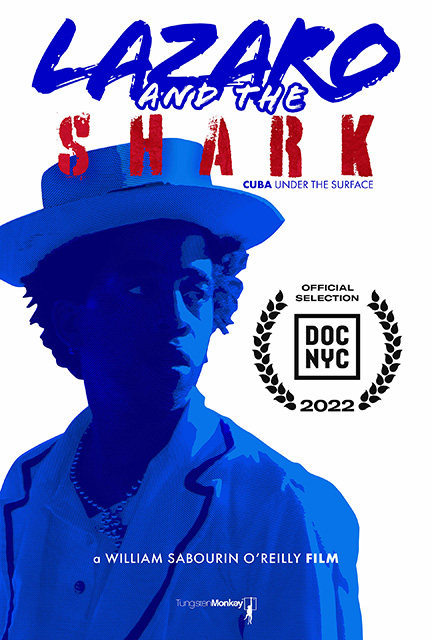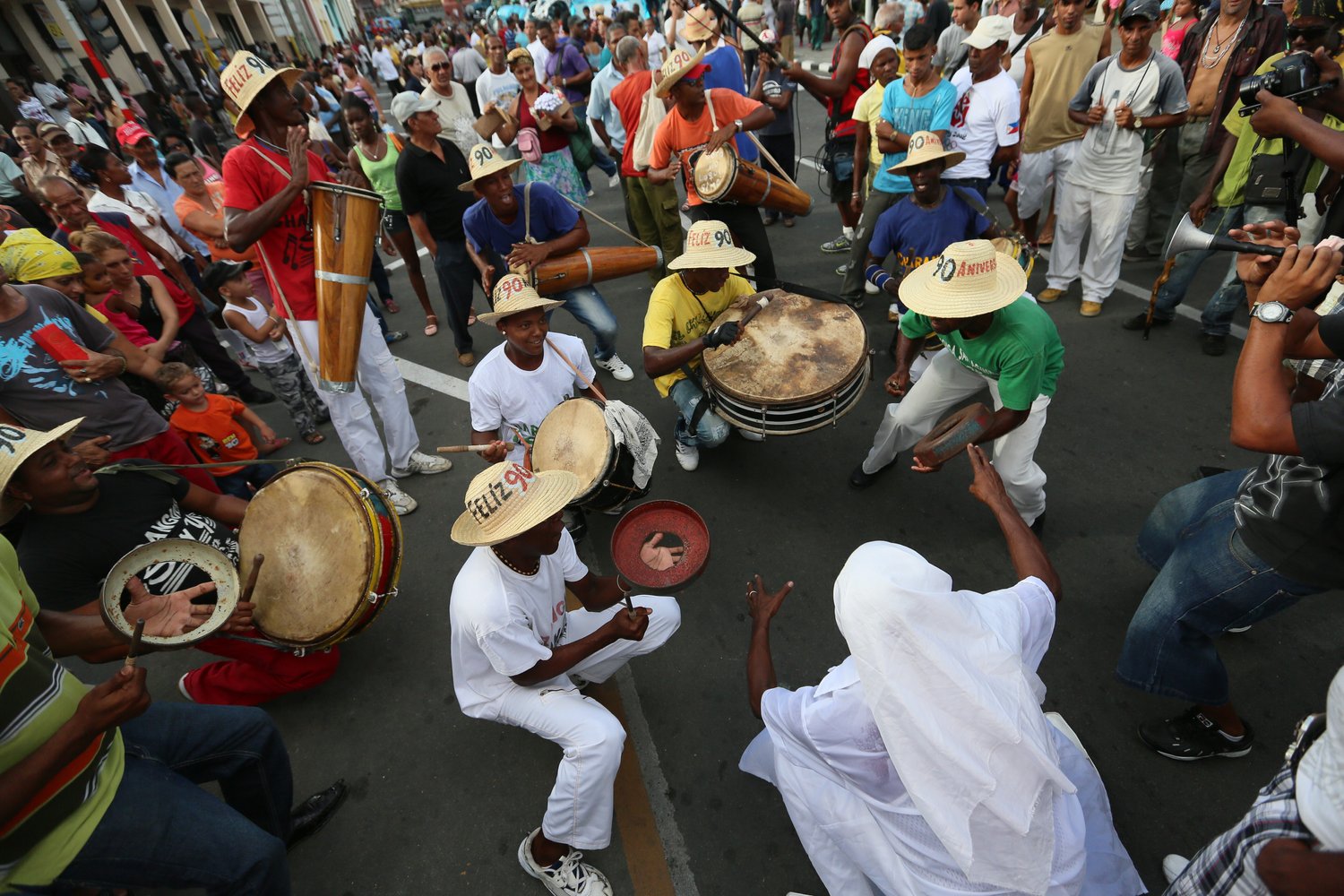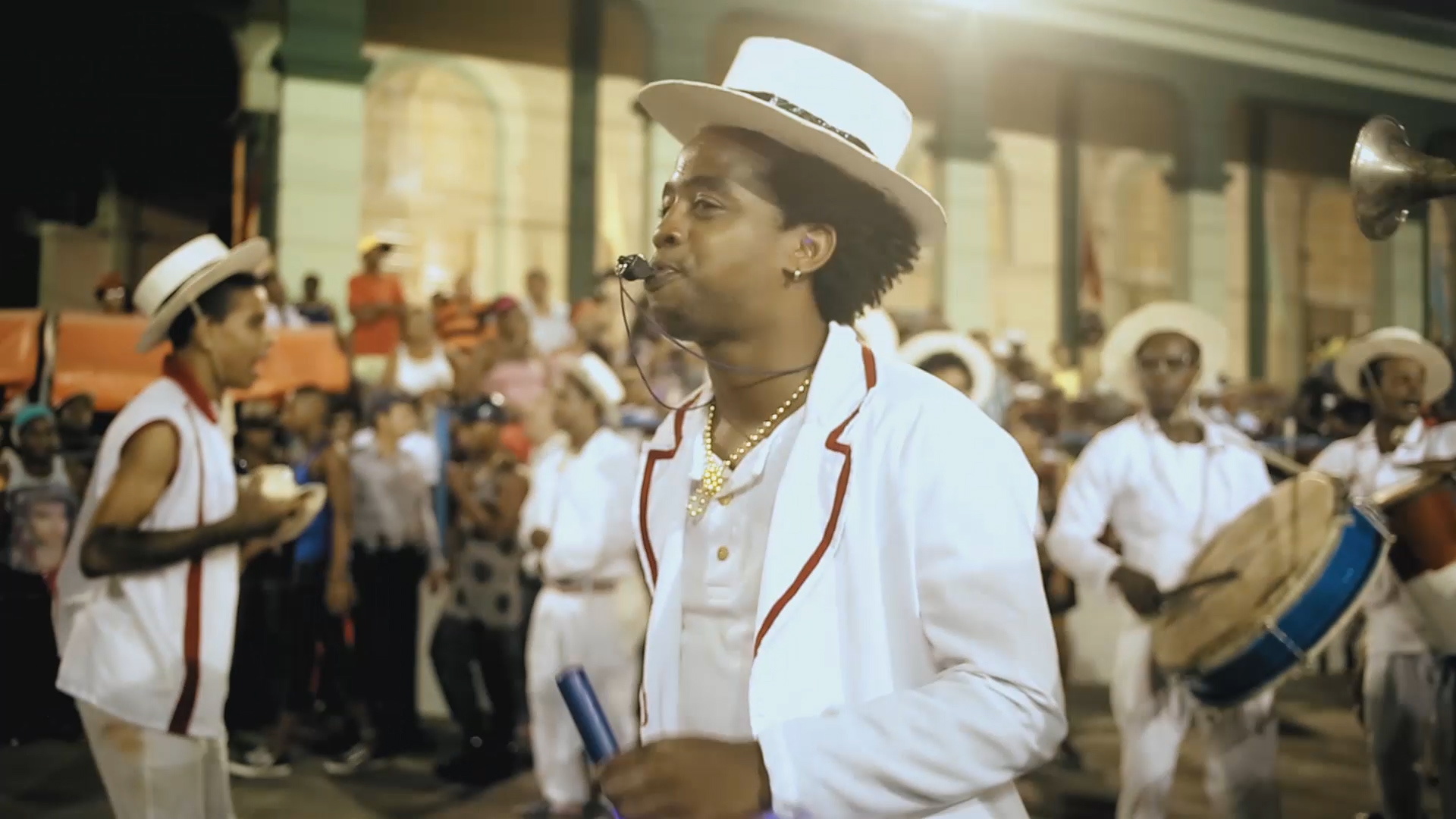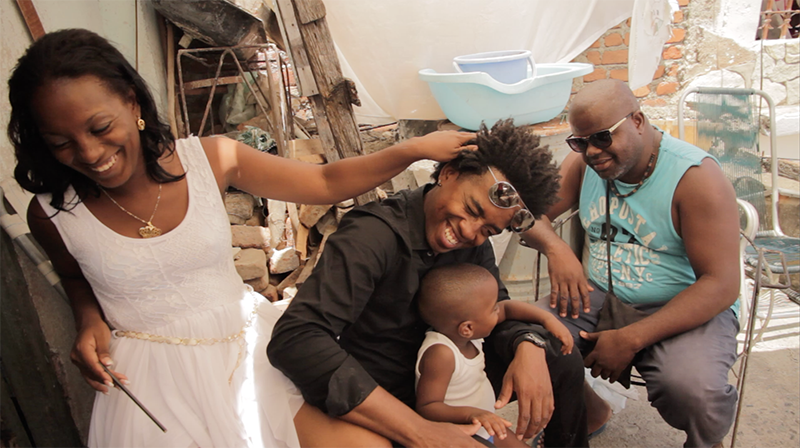LAZARO AND THE SHARK
Saturday, April 1, 2023, 7:00 PM | Bajo El Sol Gallery
St John Film Society and Bajo El Sol present
LAZARO AND THE SHARK
76-minute documentary film
Filmmaker William Sabourin O’Reilly will be present for the screening
Seating is limited, so arrive early!
“There has been no other film, produced either in or outside Cuba,
that goes as deep into the fascinating underground of the
most African of Cuban cities, Santiago de Cuba.”
FILM SYNOPSIS:
Lazaro and The Shark: Cuba Under the Surface is a feature documentary that brings us to the world of Conga Competitions in the Carnival of Santiago de Cuba – one of the poorest Carnival in the world. Lázaro, the leader of the Conga de Los Hoyos, is determined to win the coveted award bestowed to the neighborhood that presents the most spectacular Conga. Like leaders of rival congas, Lazaro must join with his neighbors and scour the strictly rationed marketplace to find the necessary materials to create a show-stopping performance.
Director William Sabourin O’Reilly, an Afrocuban native to Havana, offers a rare window into communist Cuba, a country that is often romanticized, and almost always portrayed through the eyes of an outsider. Sabourin seamlessly weaves wrenching moments of senseless police violence with intimate scenes of distant lovers aching to reunite. As the competition approaches, we see much more than Lazaro’s desire to win a local honor. We are immersed in the essential fight of the Cuban nation: to continue to live in the legacy of a revolution that has left its people in a constant struggle of poverty, or embrace a more dangerous, vital vision of living in freedom.

DIRECTOR’S STATEMENT:
“Cuba, my native country, is at a crossroads, where it has remained for years. After six decades of Communist rule, it has become quite clear that the island nation has sunk into a perpetual economic downturn resulting in poverty and political crisis. The concepts of freedom and democracy are non-existent to generations of Cubans. This reality becomes particularly heartbreaking when one bears witness to the energy, passion, and joy of the Cuban people, displayed intermittently as they experience a life of scarcity and vicissitudes.
Lazaro and The Shark tells a story about life in contemporary Cuba, marked by generational conflicts and the suspense of a competition. This film is a declaration of love to my country, my people, and my culture. The music and dancing featured throughout the film emphasizes the undeniable presence and importance of the Afro-Cuban legacy on the Eastern part of the island. The evolution of these festivities, the Conga groups, and the competition between them is both provocative and entertaining.
Stripped of the exotic gaze of an outsider, the film is full of compelling stories that peer into the daily lives of Cubans, and their valiant attempts to maintain traditions under extraordinary circumstances. My visceral desire to preserve this socio-cultural memory served as the initial trigger to begin this project over ten years ago.
The story finally takes us out of Havana and brings the audience to life in Santiago, thus allowing them to fathom the real racial, cultural, and social diversity of this fascinating country. These Cuban street parades are saturated with so much drama, love, pain, powerful music and ecstatic joy, as entire communities struggle to express themselves while facing harsh police brutality and repression.
This intense reality forms the genesis from which our characters emerge, poised with vigilance. These characters guide the audience in unraveling the complex fabric of Cuban society. Lazaro and The Shark illuminates the realities of the Cuban people through a combination of drama, color, sound and motion, recreating the magic of that colorful world.
It is my hope to challenge the audience with a question that lies in the center of the fight for Cuba’s future. Will the nation continue to live in the legacy of a Revolution that has abandoned its people within the plight of constant poverty, or will Cuba embrace a more dangerous and vital vision of living in freedom?”
– William Sabourin O’Reilly, Director

WILLIAM SABOURIN O’REILLY:
Born in Havana, Cuba 1972, William Sabourin O’Reilly moved to New Orleans in 2000 to attend the College of Fine Arts. Over the last twenty years, William has done a number of jobs around the world and particularly in New Orleans. During Katrina, William produced and edited his nationally recognized short film Old Orleans. Much of the footage he captured during the storm and its aftermath has been broadcast internationally and used in various documentaries; The History Channel, Spike Lee’s When The Levees Broke, among others. He also won a National Geographic Special Emmy Award for the documentary Witness Katrina.
Sabourin has also worked as a cinematographer on shows for HBO, PBS and Telemundo. In 2006 he won a scholarship from the city of Paris to work and live at the Cité International des Arts. In 2009 he worked on the documentary One Last Shot, executive produced by prominent actor Forest Whitaker. In 2011, William won an award for Best Documentary Short at the New Orleans Film Festival for his film Chasing Dreams. In 2015, he wrote and directed Color Code, Memories, a documentary about race relations in his native Cuba.

